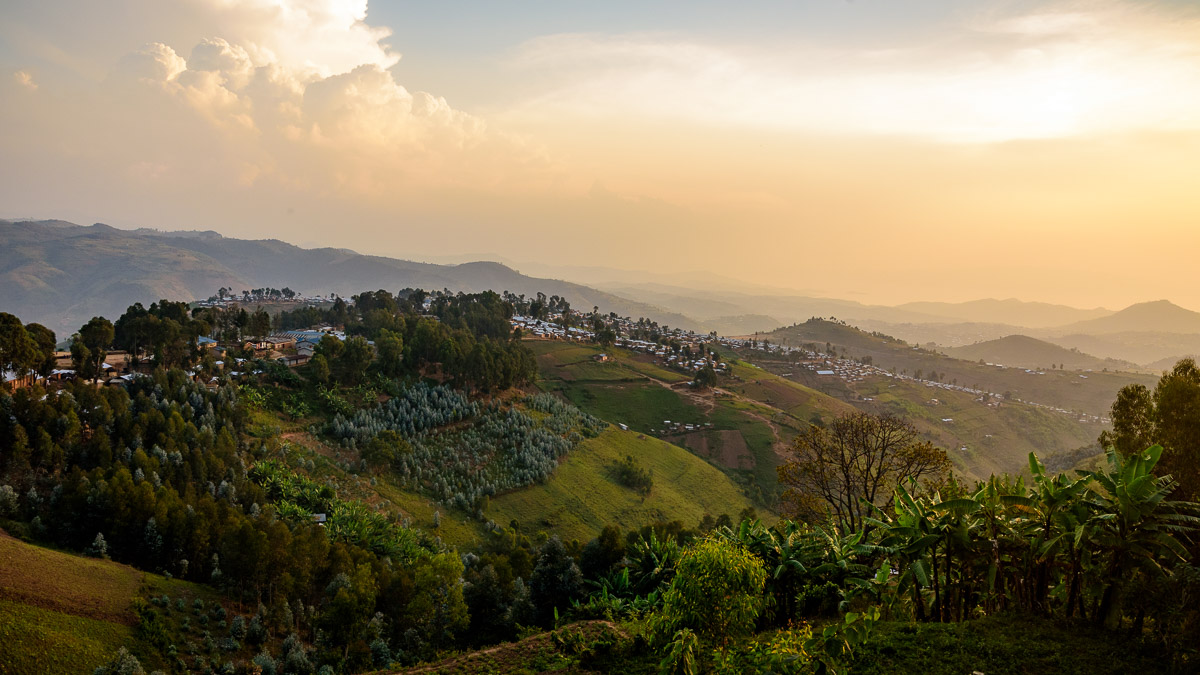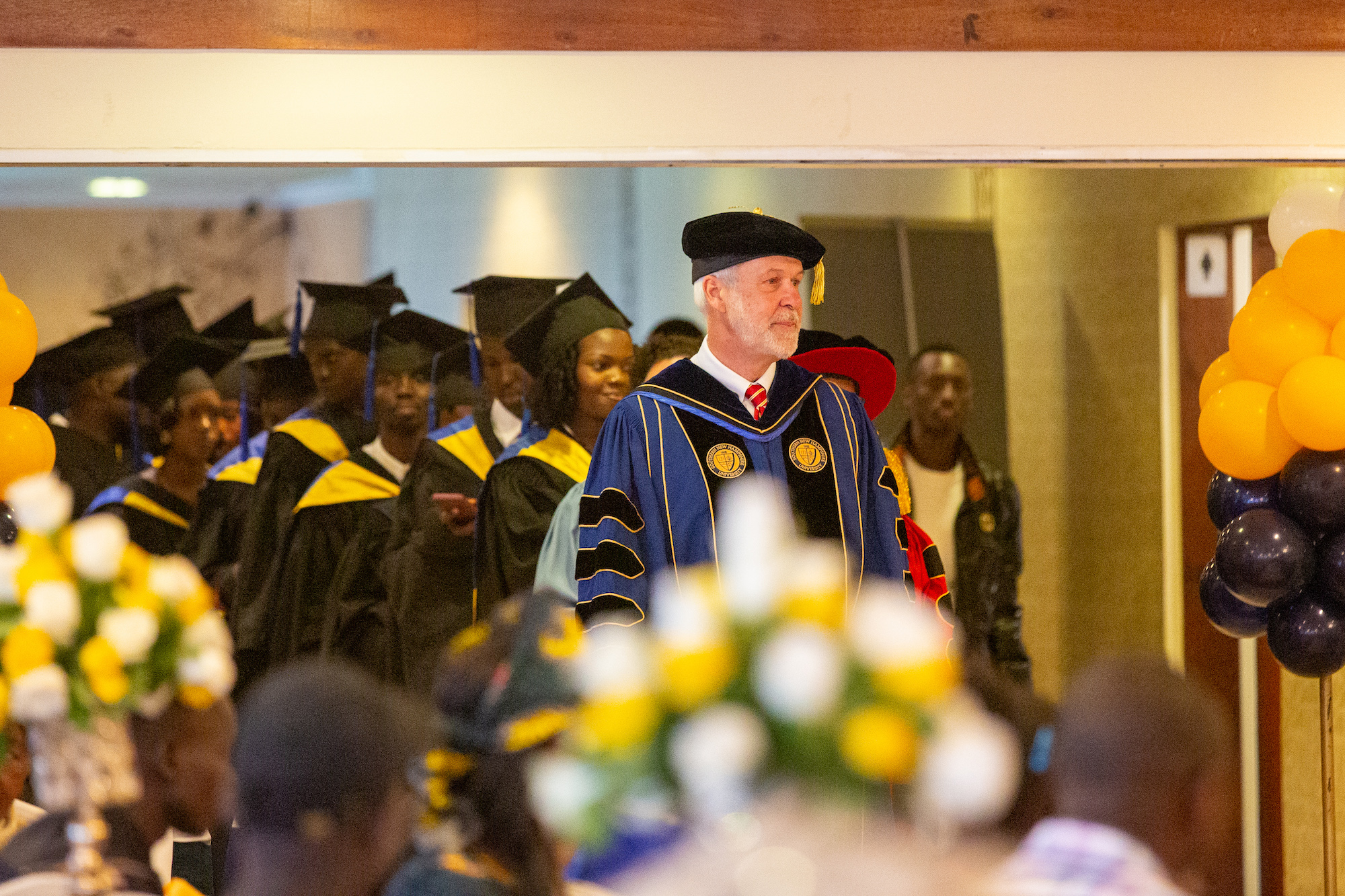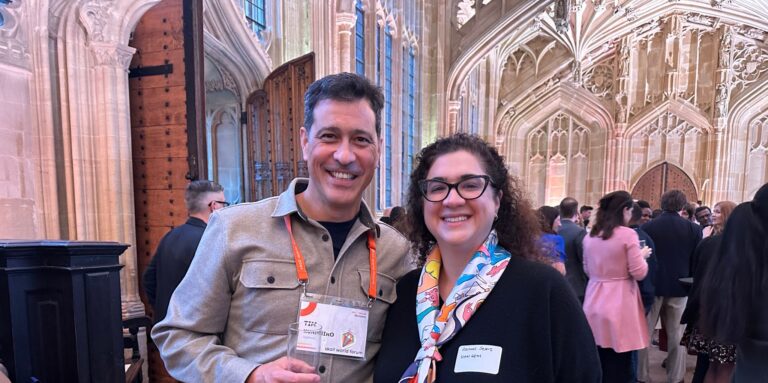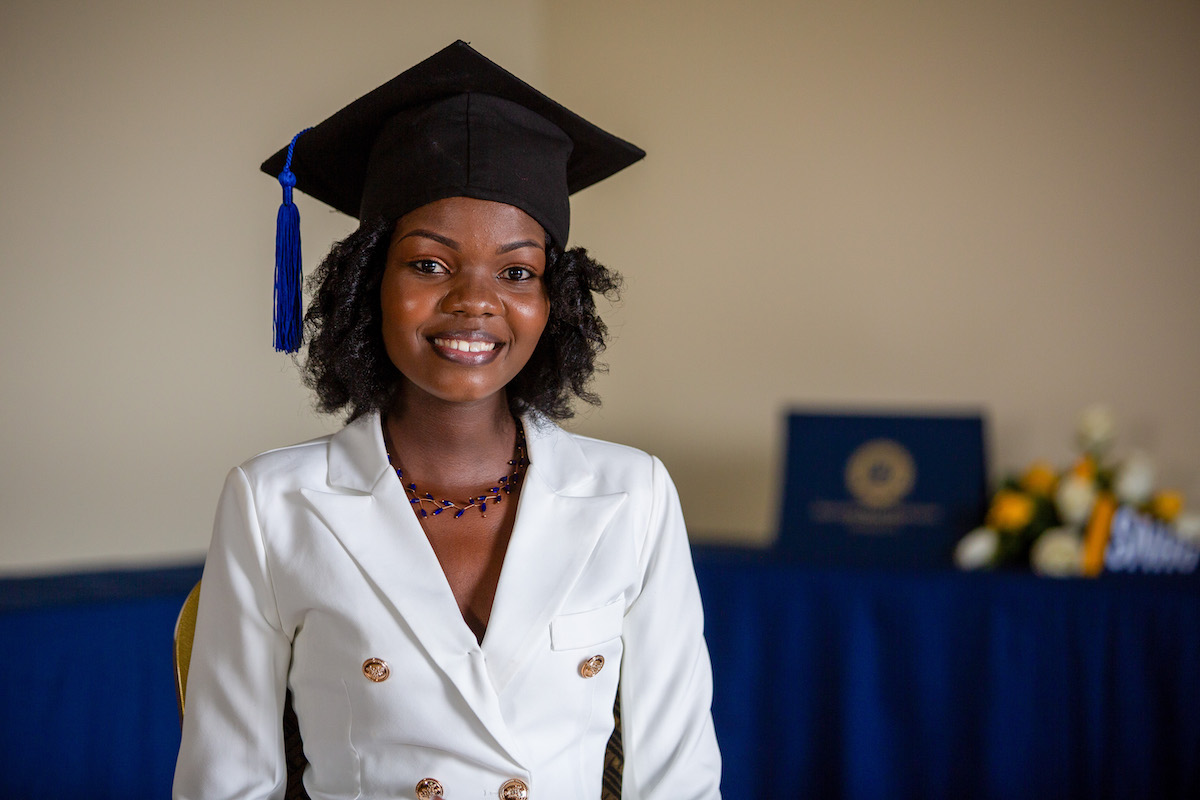Sadiki has lived in Kiziba refugee camp for over 20 years. He is originally from the Kivu region of the Democratic Republic of Congo. He escaped violence in the Congo with his family, and has always valued education. Because there was no secondary school in Kiziba refugee camp, his family sold their most valuable food ration—oil—for Sadiki to attend.
Upon graduation, Sadiki sat relatively idle in Kiziba refugee camp with no job and no opportunity for a university degree based on the $.33 a day he was allocated from humanitarian assistance. At this point in his life, he found fulfillment in playing the keyboard for weekly church services. Unlike many of the men left idle in the camp of 17,000, Sadiki was able to resist the temptations of criminal behavior or drug or alcohol abuse as a means to cope.
Sadiki was accepted in the first cohort of students when SNHU opened the campus in Kiziba Refugee Camp. He was a star, and developed a love of moral philosophy when he learned about Kant through one of his CfA projects. To this day, he’ll discuss Kant with anyone, even if most people don’t know much about it.
Sadiki was the first student to leave the camp for the capital city, Kigali, for a three-month internship with Safe Motos. He helped to design a tech platform to improve the education of motorcycle taxi drivers. At the end of the internship, Sadiki was offered a full time position with Safe Motos. He wanted to take the job, and the employer desperately wanted to keep such a talented young man. However, Sadiki’s advisors at SNHU and Kepler helped him decide to come back to the camp to finish his bachelor’s degree.
The team had learned early on that students were likely to forgo furthering their education if presented with employment opportunities. In this scenario, SNHU and Kepler discussed with Sadiki the benefits to continue exploring his educational opportunities and learning to find fulfillment, rather than just focusing on the deep need for money, a conundrum that is difficult for most Westerns to understand, but which a refugee learner knows all too well.
Initially, there were some sour feelings between both the employer and Sadiki himself. But over time, and as he studied in his bachelor’s degree, he started to understand he had a lot more to learn before simply focusing on a job. This was actualized when Sadiki applied for a WISE fellowship and was one of 25 students accepted from around the world. Reflecting back on the experience, Sadiki, with the help of mentors, realized that he was continuing to develop his own sense of a fulfilling life, rather than focusing solely on income. It’s a massive mental model shift for a student coming out of one of the most vulnerable and impoverished life situations imaginable.
Sadiki has just attended his first WISE workshop in Qatar and looks forward to graduating soon. He’s still open to different paths of study or work to continue his journey of fulfillment.



